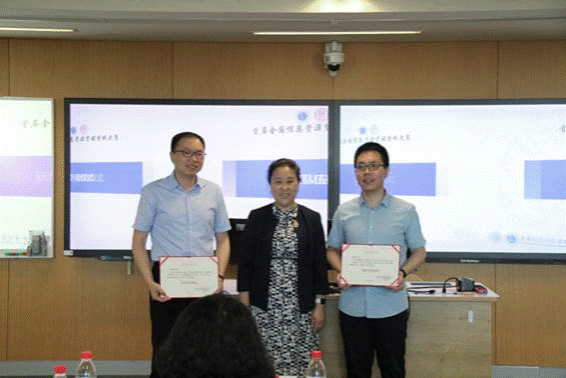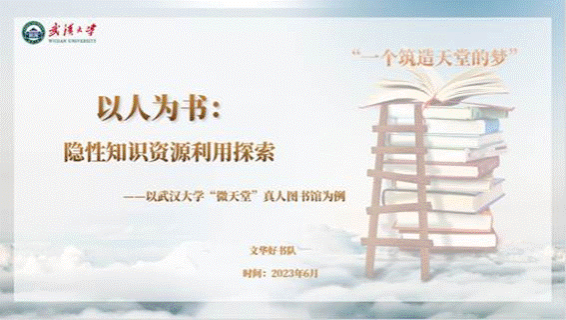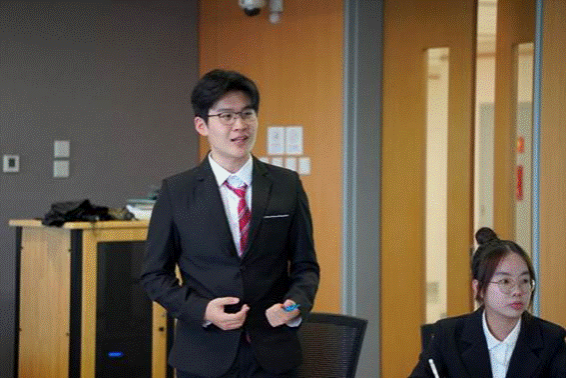The First National Information Resources Management Cases Contest came to an end in Renmin University of China on June 11. The Boone Good Book Team, instructed by Ying Huang, Associate Professor at the Department of Library Science of our School, composed by Yihang Tang, Zhuohuan Yang, Haiting Lin, Tong Sun, 2021-grade undergraduates of our School, and Haoyang Li, a 2022-grade graduate student of the School of Journalism and Communication, won the second prize in the finals. Ying Huang won the honor of Outstanding Instructor and addressed as representative.

The case analysis report presented by Boone Good Book Team was Human-oriented Books: Exploration on the Utilization of Tacit Knowledge Resources —— Taking Micro-Paradise Real-life Library in Wuhan University as an example. This report summarized the micro-paradise mode with the core of "librarian+society+live books+readers" network and "collection+organization+conversion+storage+sharing" tacit knowledge utilization path formed in the past ten years. With the help of the knowledge life cycle theory of the whole process and the tacit knowledge transformation model of key links, this report put forward the tacit knowledge utilization mode of real-life library with Chinese characteristics and university style, and explored a long-term and popularized path for the utilization of tacit knowledge and the construction of real-life library in China. In the preliminaries, semi-finals, final group matches and semi-finals, our School students passed all the way and advanced to the finals successfully.

In the finals, each team need to analyze and debate the same case within a limited time. Taking the case value mining and popularization as the breakthrough point, our School students focus on the unique core advantages of "knowing the code to open the door" intelligent container from the perspective of information resources management, and put forward the thoughts of “data intelligence leading, demand creation, user-oriented and continuous innovation”. Through the empowerment theory, data life cycle theory and Wilson’s information behavior model, the application effect of demand-oriented data intelligence is analyzed, and some effective suggestions are put forward in combination with the development status of the industry. The in-depth analysis and wonderful debate of the team members won the praise of the judges.

The purpose of this Contest was to stimulate students' interest in professional learning in the field of information resources management, cultivate students' ability to understand and solve problems and the spirit of teamwork, enhance students' practical ability and innovation ability, and promote students’ interdisciplinary exchanges in information resources management in colleges and universities across the country. Since its launch in March this year, 260 teams formed by 1,130 students from 91 universities across the country participated in the Contest.